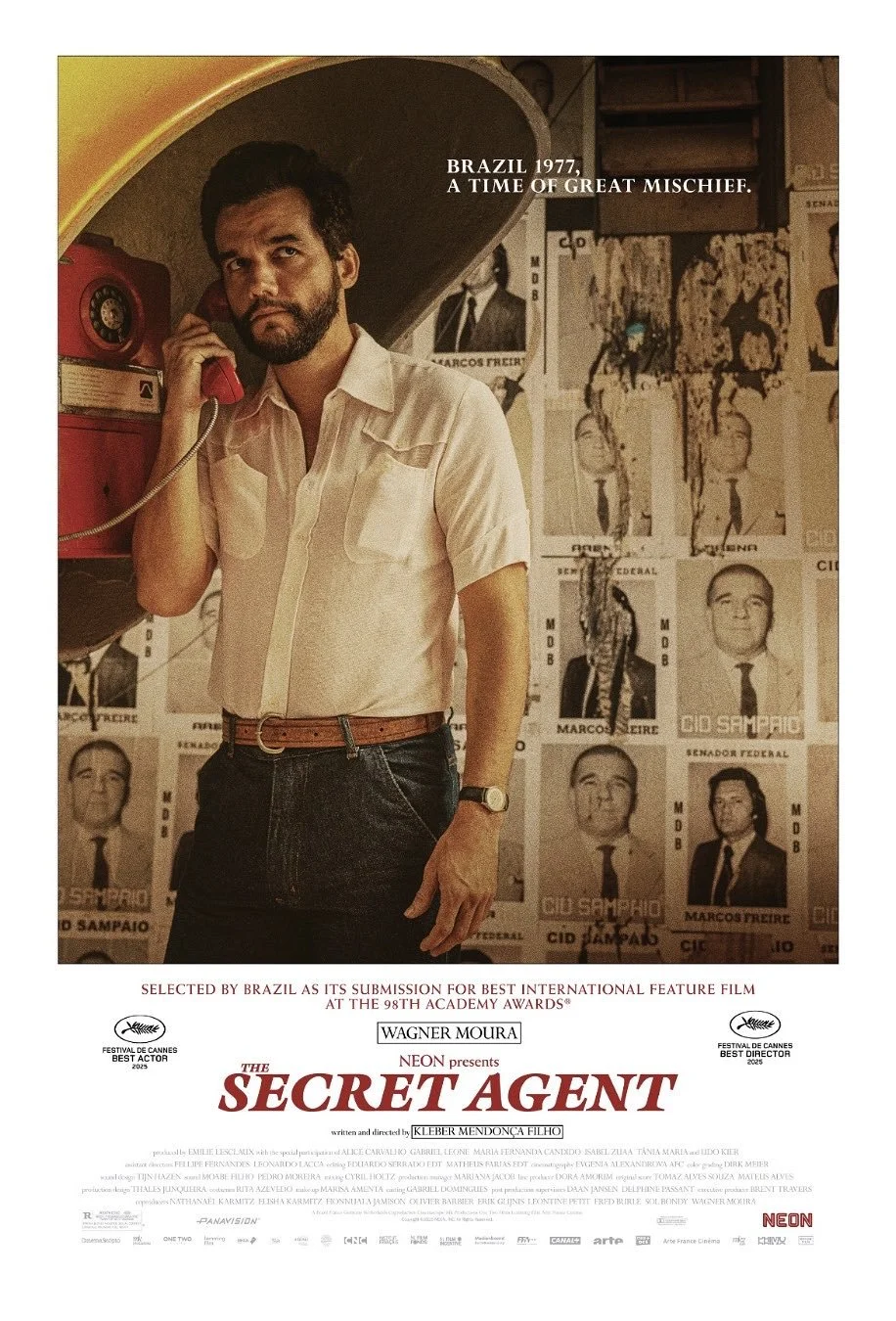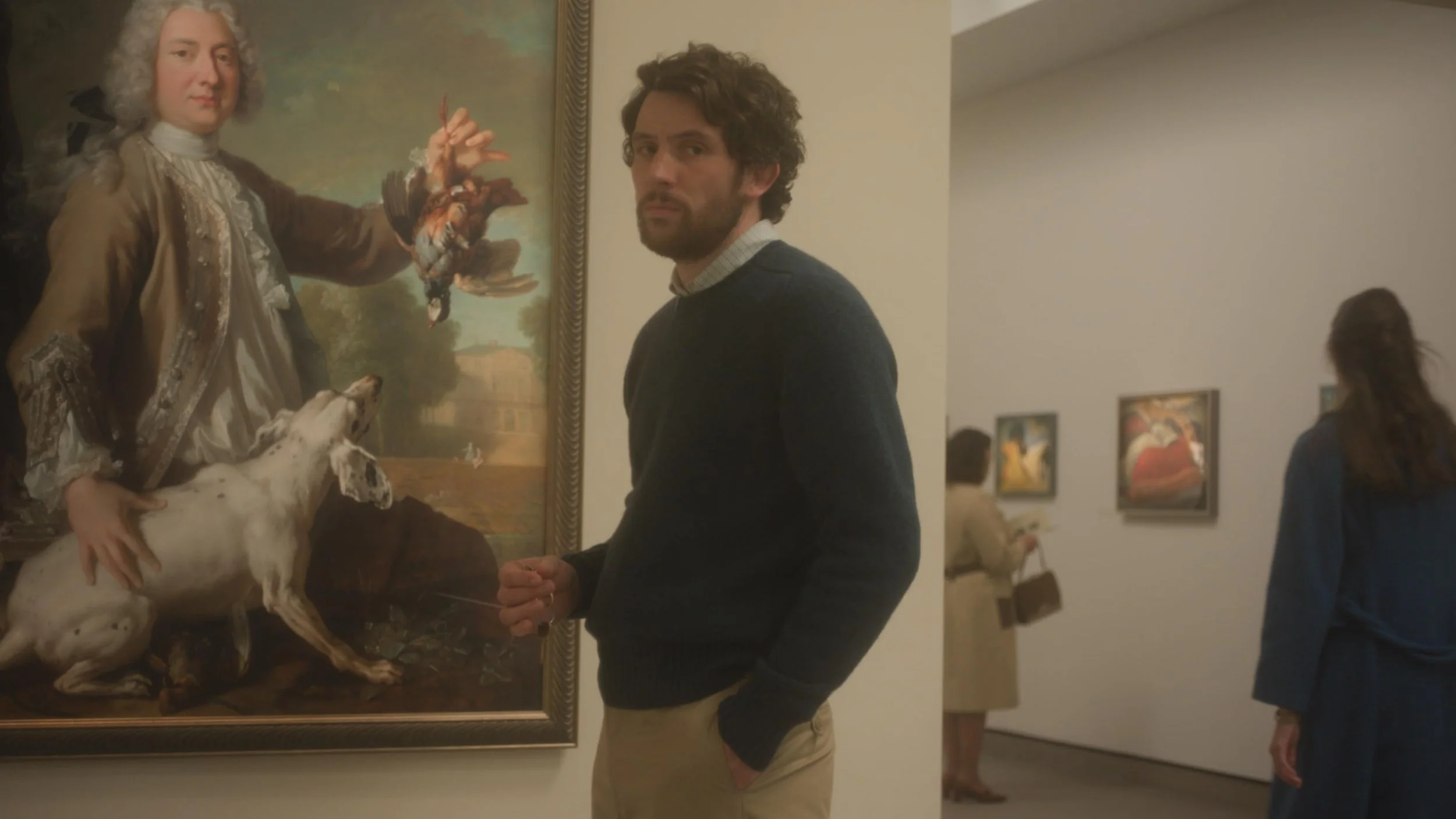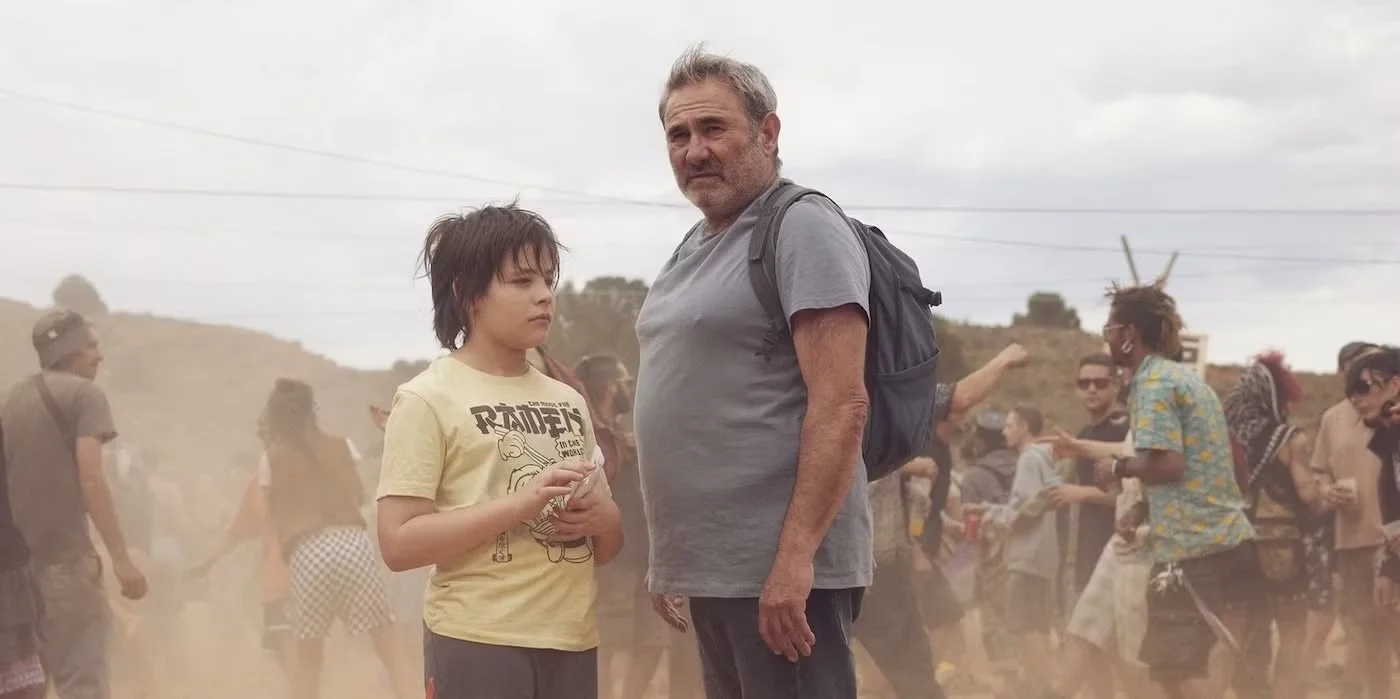The Secret Agent
Viva Dona Sebastiana!
The Secret Agent by Kleber Mendonça Filho was warmly received back in Cannes, and since then it kept gaining strong support throughout its festival run. Now officially selected as Brazil’s submission for Best International Feature Film at the 2026 Oscars, I finally got to see it at the 2025 Warsaw Film Festival — and it became one of the true highlights of the event.
The story follows former teacher Armando, who returns to his hometown under the protection of Dona Sebastiana — an elderly woman sheltering him and other political refugees during Brazil’s military dictatorship in 1977. Through his eyes, we witness the lives of those trying to hold on to dignity in an age of censorship, fear, and silence. It’s a portrait of a society trapped between lawlessness and oppression, where the ones in power cared only to preserve their own authority. Assassins are hired in broad daylight, and the echoes of violence reach deep into the everyday lives of intelligent, educated, and talented people — the very soul of the nation.
Technically, we are in the same historical period and dealing with the same political wounds that Walter Salles portrayed last year in his Oscar-winning I’m Still Here with Fernanda Torres. But this time the main characters are ordinary people — not the privileged class. The film tells more about culture, traditions, and a deep love for a country that was lost in chaos, consumed by greed for power and money, but still loved by its people. This love runs like a thin thread through the entire film. The colorfulness, that South American lightness, expressiveness, affection, and brightness of tones — all of that makes the movie feel alive. And since it’s set in the 70s, that retro vibe looks absolutely stunning on screen.
It’s also a film that sadly reflects our present time. Even though more than 40 years have passed, it’s hard to ignore how society keeps sliding backward. Things like running from authorities, the exile of intellectuals, emigration, corruption, greed, and political murders — they all feel painfully familiar on almost every continent.
Despite its heavy subject matter, the film never becomes overly dramatic or grey. Instead, it constantly immerses us in vivid, vibrant scenes that sometimes even feel a bit comical — yet they add a powerful sense of wanting to live and move forward no matter what. This is a story about ordinary people who, despite fear, prejudice, and threats, still hope for better days and believe that even the darkest times will eventually pass. It’s about those who are afraid to die just for standing against dictatorship, and those who simply refuse to stay silent. It’s a film about friendship, family, difficult choices, and faith in the good — even when there’s a killer standing in front of you with a gun.
The cast beautifully carries this emotional duality. Wagner Moura as Armando is electrifyingly good — he completely dominates the screen and delivers one of the best male performances of the year. If I don’t see his name in the awards race… we’ll have a problem. The rest of the cast is equally strong and authentic — from Tânia Maria as fearless Dona Sebastiana, to Robério Diógenes as a corrupt cop, and Maria Fernanda Cândido as a powerful Elza. Everyone brought something unique: drama, routine, or expression — and together it all felt so right and remarkably organic on screen.
In the end, The Secret Agent is a bright and memorable film wrapped in a neo-noir political thriller atmosphere. It tackles a difficult subject and does it in the right way — balancing between storytelling and meaning, without trying to lecture the viewer, but rather exploring history together with them. And even though there are a few flaws — like the not-so-successful ending with Armando’s son — nothing takes away from the fact that you’ve just watched truly great cinema.
8/10




